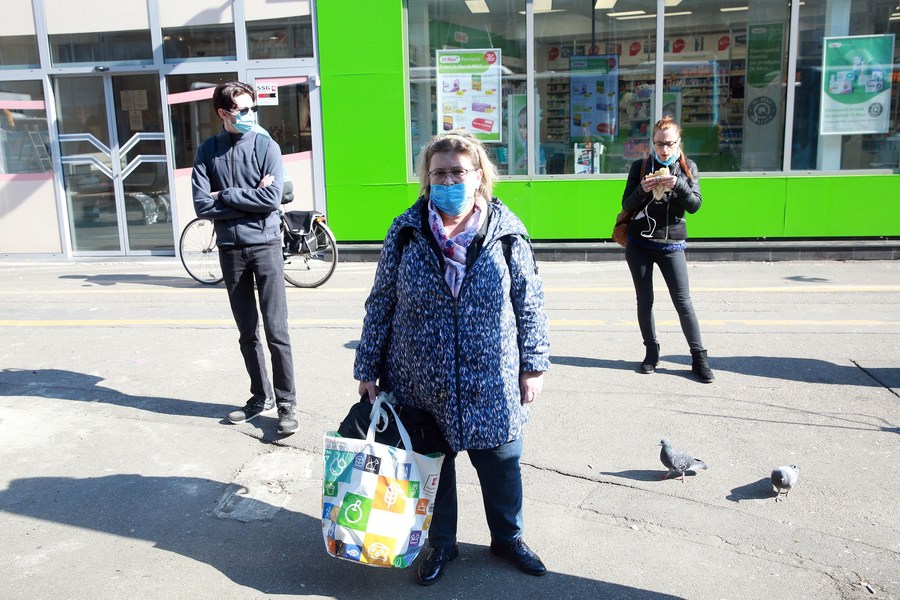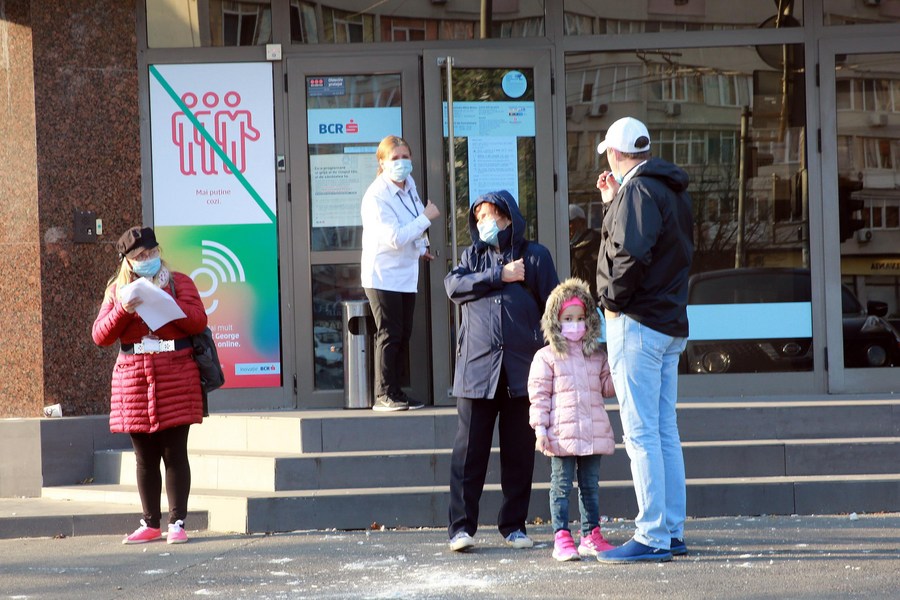
People wearing masks wait for bus in Bucharest, Romania, on Oct. 20, 2020. (Photo by Gabriel Petrescu/Xinhua)
Official statistics showed that the total infections in the country exceeded 150,000 on Oct. 10 and 200,000 on Oct. 23, respectively.
BUCHAREST, Nov. 8 (Xinhua) -- Romania's COVID-19 caseload topped 300,000 on Sunday, reaching 303,751, after another 6,752 cases were confirmed in the last 24 hours, according to the authorities.
Official statistics showed that the total infections in the country exceeded 150,000 on Oct. 10 and 200,000 on Oct. 23, respectively.
Meanwhile, 86 COVID-19 patients -- 40 men and 46 women -- died, bringing the country's total deaths from the coronavirus-caused disease to 7,879, according to the Strategic Communication Group (GCS), the official COVID-19 communication task force.
Currently, 12,295 COVID-19 patients are hospitalized in specialist healthcare facilities, including 1,056 in intensive care, the highest number recorded so far.
A total of 40,629 people confirmed with the novel coronavirus infection are in isolation at home, while 23,788 are in institutional isolation, according to the GCS.
Under a governmental emergency ordinance issued on Oct. 22, patients with mild-to-moderate COVID-19 symptoms as well as the asymptomatic ones will stay home under the monitoring of family doctors, so as to preserve medical resources for the most severe patients.

Citizens, wearing masks and keeping distance, wait to enter a bank in Bucharest, Romania, on Oct. 20, 2020. (Photo by Gabriel Petrescu/Xinhua)
Starting Monday, the 30-day curfew decided by the government will come into effect. A series of specific measures will also be implemented to contain the spread of the coronavirus, including the mandatory mask-wearing in all public spaces.
According to the World Health Organization (WHO), face masks should be used as part of a comprehensive strategy of measures to suppress COVID-19 transmission and save lives.
Since the beginning of the COVID-19 outbreaks in early 2020, wearing masks in public has been widely accepted in Asian countries like China, South Korea, Japan and Vietnam to limit the spread of COVID-19. ■



